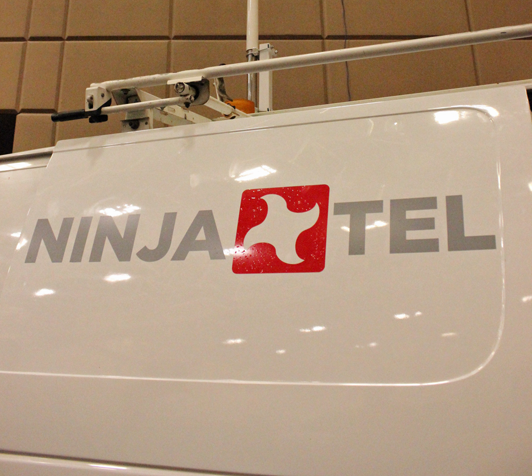
The WiFi at the annual Defcon hacker conference has long been inhabited by a battery of live and automated mischief makers that sniff packets, scan ports, and exploit whatever weaknesses can be found. Last year, cellular networks were also rumored to be compromised, raising the question: How does one stay both safe and connected at the Las Vegas-based confab?
For a hacker crew known as Ninja Networks, the answer was to build its own private phone network, complete with 650 HTC One V smartphones running a highly customized version of Google's Android operating system and a fully functional GSM network. Inside a van parked in the vendor section of the conference and bearing a sleek "Ninja Tel" logo was universal software radio peripheral gear, and devices that used the Open Base Transceiver Station and Asterisk software. This van also sported a included a 10-foot antenna on top.
"The idea was to do something cool," said Brandon Creighton, aka cstone, one of the organizers of the project. "We've wanted to run our own phone company for quite a while."
Running a private mobile phone network is something that has been done before at other hacker events, most notably the Chaos Communication Congress in Berlin.
For redundancy and reliability, Ninja Networks engineers took advantage of a feature added to the Ice Cream Sandwich release of Android that makes it easy to route calls over GSM or, using the SIP, or Session Initialization Protocol, over a private portion of the Defcon WiFi. As each subscriber was added to the network, a syncing app added the user to the list of contacts contain on all other phones, giving each person a way to text or call the other. An app contained on the custom phone made it easy for other users to write apps for the device.
One of the official sponsors of the project is Facebook, which has long been rumored to be mulling a customized phone of its own—although Mark Zuckerberg denied that during the earnings call this past week. The ability to use a variety of customized apps to chat, mingle, or play games with other members of an exclusive club may hint at the thinking behind such a release by the social network.
Upon booting up for the first time, the phone displayed a list of terms and services that were unusually frank.
"You hereby grant Ninja Tel permission to listen to, read, view and/or record any and all communications sent via the network to which you are a party," one section stated. "Before you get all upset about this, you already know full well that AT&T does this for the NSA. You understand that you have no reasonable expectation of privacy as to any on the Ninja Tel network. You grant Ninja Tel a worldwide, perpetual, assignable, royalty-free license to use any and all recorded or real-time communications sent via the Ninja Tel network to which you are a party. Don't worry, most of this is for the lulz."
During day one of Defcon the Ninja Tel network saw its share of hiccups. But with only 650 of the 13,000 or so Defcon attendees receiving a phone, the device became the hub of an exclusive club that drew plenty of interest and envy from outsiders.
What follows are a few pictures of the phone and the network operations center.
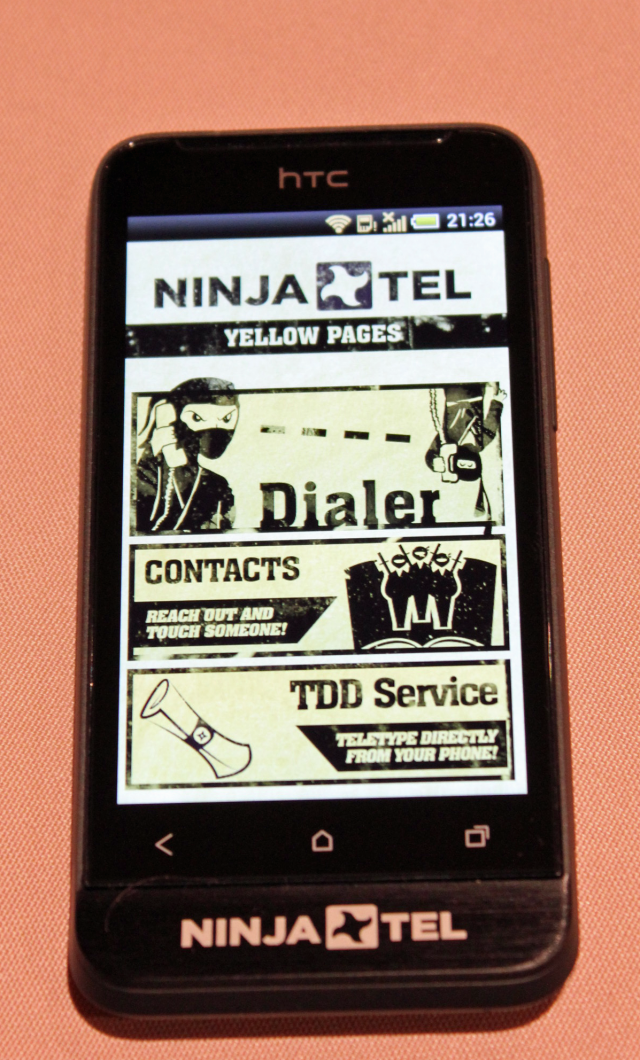
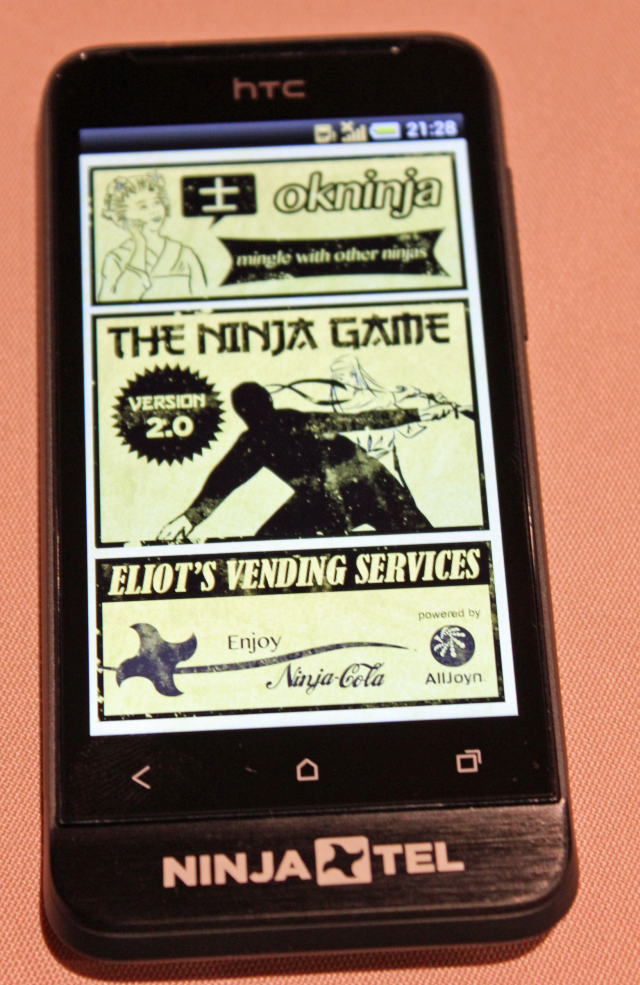
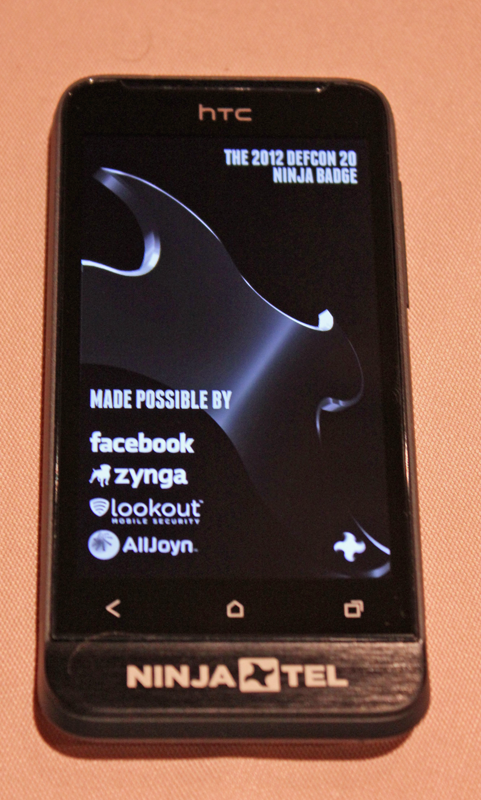
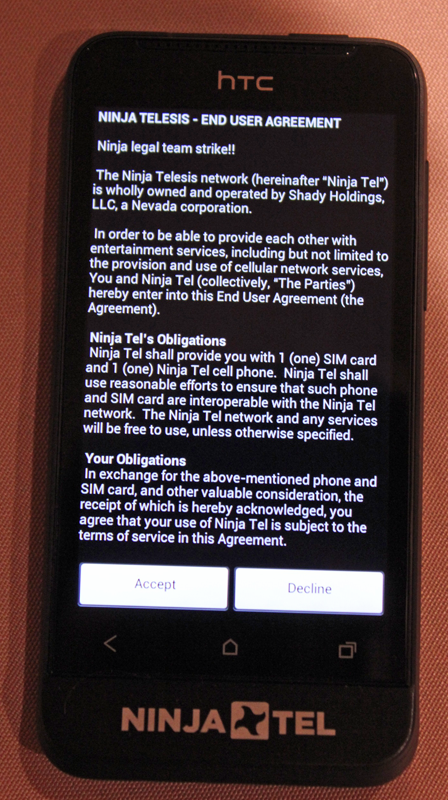
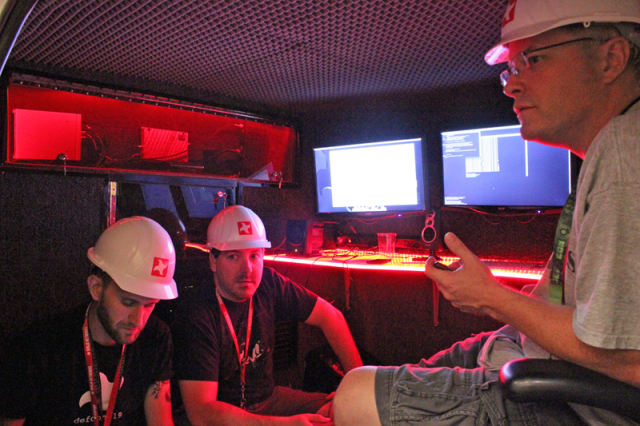
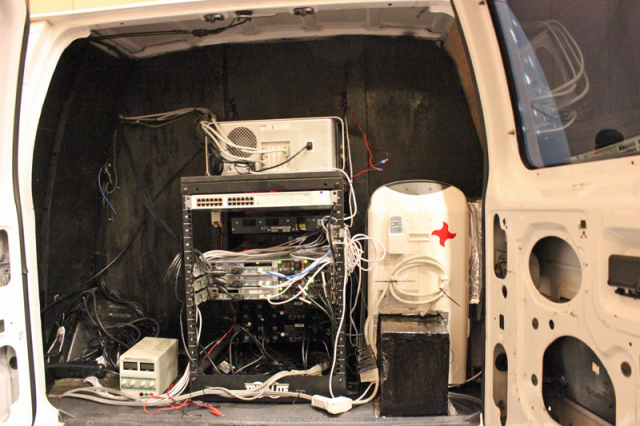
Listing image by Dan Goodin
reader comments
21